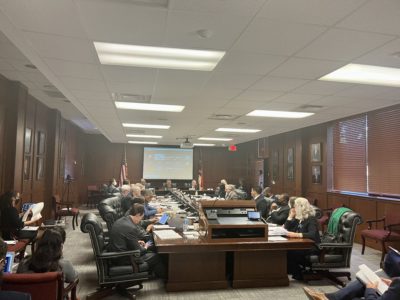
College Promise Programs are designed to ensure access to higher education, particularly to first-generation college students and those who may not be able to afford tuition costs. Successfully navigating higher education systems associated with access and success require programs designed not only to address funding, but support services that follow students throughout their journey to a baccalaureate degree.
The NC Career and College Promise Program (CCP) is a dual-enrollment program administered in partnership by the NC Department of Public Instruction, the NC Community College System, and the University of North Carolina System (UNC System). Eligible high school students may enroll, tuition-free, in prescribed pathways aligned with technical careers or college transfer courses.
In a 2020 EdNC article highlighted that more than 27% of high school graduates had participated in the CCP program. The report from Sarah Deal, a research affiliate at the Belk Center for Community College Leadership and Research, goes on to highlight the discrepancies in race and gender equity among participants on track to earn a degree through the CCP college transfer pathway.
CCP college transfer participants are more likely to be white (76% compared to 56% non-white), female (63% to 50% male) and to speak English at home (93% compared to 86%). Increasing the state’s educational attainment level among underrepresented populations through college introductory programs like CCP is a great start. However, upon high school graduation, the promise for these students ends and the college credits they did earn are loosely articulated to N.C. public universities, sometimes as electives, rather than course equivalencies.
To lengthen the promise and reach historically underrepresented students beyond their senior year of high school through attainment of a college credential, continued funding for tuition and student support services must be part of the promise in North Carolina as it has proven to be effective in many states across the nation.
Literature review
Each year, Rockefeller Philanthropy Advisors publish a catalog of national college promise programs. According to the 2020 Rockefeller College Promise Catalog, most promise programs across the nation have a few common features:
- Promise programs have clear and detailed policy that addresses students, institutions, and policymakers.
- Promise programs make a college certificate or degree available as an end goal.
- Promise programs create a pathway to community colleges and/or universities, and
- Eligibility requirements for college promise programs include state residency and require participants to be lawfully present in the U.S. or DACA eligible and DACA applied/approved.
The Rockefeller Report’s broad definition that speaks to ensuring access and the list of common features give rise to the need for further examination of North Carolina’s version of a college promise program.
More recently in 2022, EdNC explored North Carolina’s CCP program challenges by comparing it to the fundamentals of national programs and ultimately pointed to the exemplar models of Tennessee- The Tennessee Promise, Delaware- Delaware SEED (Student Excellence Equals Degree), and Oregon- The Oregon Promise. All of which have promise programs with outcomes addressing the challenges of college access and equity among underrepresented populations beyond high school.
Recommendations
The current CCP model is an introduction to a promise. As we acknowledge our responsibility for ensuring equitable access to postsecondary education and gain a better understanding of college promise programs across the nation, North Carolina must lengthen the promise of access and support beyond high school graduation.
- Tuition waivers must be expanded beyond high school to ensure access through the bachelor’s degree. North Carolina’s CCP program has favorably created opportunities as a dual-enrollment high school program.
- Strengthen the monitoring of articulated CCP credit between the NC Community College System and the UNC System. The promise is short-lived when credits are loosely articulated as electives in the UNC System. University students and parents want to promote CCP, but it must work for them in order to testify of its worth to family and friends.
- Underserved and marginalized populations must be strategically recruited to participate in the CCP program and guaranteed support services. This must become a prioritized responsibility of high school counselors, principals, and community college recruiters; particularly in pathways that lead to sustainable wages.
Overall, most high school students, though successfully completing dual enrollment courses, are not completing pathways at the Community College before graduation. Lengthening the promise by offering free community college tuition to any high school graduate who has earned CCP credit will help NC reach its goal of a highly educated workforce. Funding state tuition waivers and customized support services for underrepresented participants is particularly critical. Education leaders and policymakers are urged to lengthen the promise by enhancing the current CCP program in high school and beyond.




